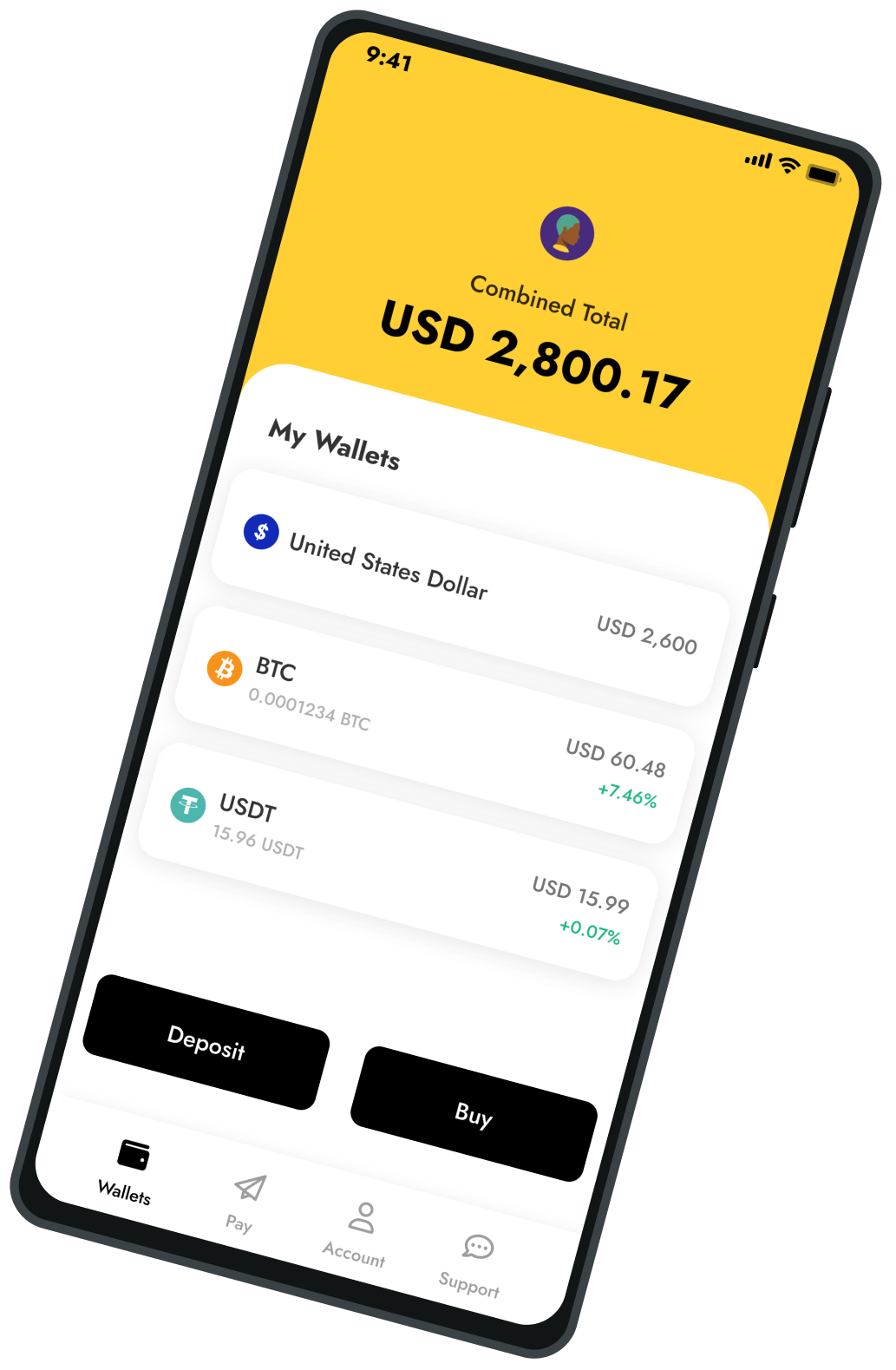Crypto Scoop: Bitcoin Trades At $64,000 as Anticipation Builds for Upcoming Halving
Crypto Scoop
Back to blog
Yellow Card
April, 19 2024
Crypto Scoop
On this page
In the crypto scoop this week, we review price moves, crypto projects, developments, and regulatory initiatives worldwide.
While the countdown for the Bitcoin halving continues, the crypto space records exciting initiatives across the globe. In this edition of the Crypto Scoop, we review the following:
- Price moves of top cryptocurrencies
- Tether’s expansion beyond stablecoins
- Ethereum’s next major upgrade
- Crypto initiatives across the globe and more.
Price Moves of Top Cryptocurrencies
The crypto space has been abuzz with anticipation of the Bitcoin halving. While Bitcoin currently trades at $64,000, Ethereum trades at $3,100.
A significant focus during the week was on the upcoming Bitcoin halving, a scheduled event that cuts the reward for mining Bitcoin blocks in half. This reduction not only affects miners but also significantly impacts Bitcoin's market supply. According to Bybit, a crypto exchange, the supply of Bitcoin on exchanges is predicted to run out in nine months if the current trends continue. This forecast is driven by a sharp reduction in available Bitcoin, compounded by heavy purchasing of U.S. Bitcoin exchange-traded funds (ETFs), which continue to withdraw substantial amounts from available reserves.
This week alone, as the halving approaches, Bitcoin's transaction fees have surged, overtaking those of Ethereum for three consecutive days. The higher fees reflect increased transaction volumes and are likely playing a critical role in sustaining miners as block rewards halve.
Public interest in the halving event has surged to unprecedented levels, with Google Trends data indicating that searches for Bitcoin halving have reached their highest point ever, predicting a peak popularity score of 100 by the month's end.
Bitcoin was not the sole cryptocurrency in the limelight this week, as Solana announced an exciting update. Solana developers have implemented a new version (1.18.11) of the validator client software on the devnet to tackle network congestion issues caused by spam transactions. This version is now being tested on the testnet, and validators are urged to upgrade to evaluate its effectiveness. Additionally, Solana is exploring further enhancements, including optimising computing unit usage and implementing a stake-weighted Quality-of-Service (QoS) system to prioritise transactions and improve network efficiency.
Meanwhile, the International Monetary Fund (IMF) has highlighted Bitcoin's significant role in cross-border financial flows, particularly in countries facing restrictive financial regulations, such as Argentina and Venezuela. Residents in these nations are increasingly turning to Bitcoin to bypass traditional financial systems, move capital across borders more freely, and safeguard their savings against hyperinflation and stringent controls.
Tether Announces Innovative Plans to Expand Beyond Stablecoins
Tether, the company behind the world's largest stablecoin by market value, is embarking on a significant restructuring to broaden its scope beyond stablecoins. This strategic pivot was announced on April 18, launching four new business divisions: Tether Data, Tether Finance, Tether Power, and Tether Edu. Each division is designed to expand Tether's mission by offering new infrastructure solutions, investments, and services, positioning the company to foster a resilient and future-ready financial system.
Amid these developments, Tether's CEO Paolo Ardoino emphasised the importance of competition in the stablecoin sector during an exclusive interview at Paris Blockchain Week. Ardoino argued that adding new players, such as Ripple with its forthcoming stablecoin, is crucial for increasing the legitimacy of stablecoins in the regulatory landscape. He believes a competitive market is essential for earning recognition and acceptance from regulators, thereby enhancing fiat-backed tokens' overall credibility and utility.
Ethereum Developers Announce Plans For A New Upgrade
The Ethereum network is set for a significant upgrade known as Pectra, which promises to dramatically enhance wallet functionality with the integration of Ethereum Improvement Proposal (EIP) 3074. Tim Beiko, the protocol support lead at the Ethereum Foundation, confirmed this development, highlighting that EIP 3074 has received substantial backing from the cryptocurrency community since its introduction by Lightclients in 2020.
EIP 3074 aims to revolutionise the user experience of Ethereum wallets, enabling them to operate more like smart contracts. This would allow traditional crypto wallets, such as MetaMask, to execute advanced features, including transaction bundling and sponsored transactions, where wallets can cover transaction fees for other parties. This upgrade will simplify the signing process to a single step, enhancing efficiency significantly. For instance, trading a new token on decentralised exchanges (DEXs) like Uniswap would now require only one signature from the user, rather than the current two-step process of token approval followed by transaction confirmation.
The Pectra upgrade, currently under deliberation by Ethereum developers, is poised to significantly streamline how Ethereum users interact with the blockchain, making transactions more seamless and user-friendly. The crypto community eagerly anticipates this improvement, which is expected to strengthen Ethereum's position as a leader in blockchain innovation.
Crypto Initiatives, Growth and Regulation Across the Globe
In Nigeria, the cryptocurrency community is grappling with the fallout from a crackdown on Binance executives, which has sparked concerns about the country's business environment, particularly in the Web3 sector. According to Lucky Uwakwe, chairman of Nigeria's Blockchain Industry Coordinating Committee (BICCoN), this governmental hostility is causing investors to pull back, threatening the growth and viability of blockchain innovations in the region.
Meanwhile, South Korea is experiencing a surge in cryptocurrency activity, with the Won becoming the world’s most-traded fiat currency against cryptocurrencies in the first quarter of 2024. Research firm Kaiko noted that this rise is fueled by intense competition among Korean crypto exchanges, pushing the Won's trading volume slightly above that of the U.S. dollar.
Canada is taking proactive regulatory steps by planning to implement the OECD's international Crypto-Asset Reporting Framework (CARF) by 2026, a year ahead of the global deadline. This framework will introduce stringent reporting requirements for crypto asset service providers (CASPs), including exchanges and brokers, enhancing transparency and regulatory oversight.
In Russia, the Bank of Russia is advocating for the use of cryptocurrencies in international settlements, albeit within a controlled, sandbox-style experimental regime. This move is part of broader efforts to diversify and modernise Russia's global payment systems.
Lastly, Hong Kong is making strides to establish itself as a prominent Asian crypto hub. The Hong Kong Securities and Futures Commission (SFC) has approved several spot Bitcoin and Ethereum ETFs, aiming to attract both retail and institutional investors and capitalise on the growing enthusiasm for cryptocurrency investments.
TikTok And Addidas Announce Exciting NFT and Web 3 Initiatives
BytePlus, the enterprise technology arm of ByteDance, TikTok's parent company, is making a significant dive into the Web3 space by partnering with Mysten Labs, creators of the Sui layer-1 blockchain. Announced on April 17, this partnership leverages BytePlus' expertise in artificial intelligence (AI) and data warehousing to enhance the Sui blockchain ecosystem, with a particular emphasis on Web3 gaming and SocialFi projects. BytePlus plans to integrate its advanced solutions, including ByteHouse—a cloud-native data warehouse, to enhance the functionality and capabilities of Sui's full-node data.
In a parallel development in the Web3 space, Adidas has teamed up with STEPN, a Solana-based move-to-earn application, to launch a unique NFT sneaker series. This collaboration merges virtual and physical aspects of fitness, encapsulating a growing trend where fashion and technology intersect. The STEPN x Adidas Genesis Sneakers collection will feature 1,000 unique NFTs, combining digital perks with physical products. The NFTs will be available for purchase on the MOOAR marketplace, with a portion reserved for early access by STEPN users and the remainder available to the general public via a raffle.



